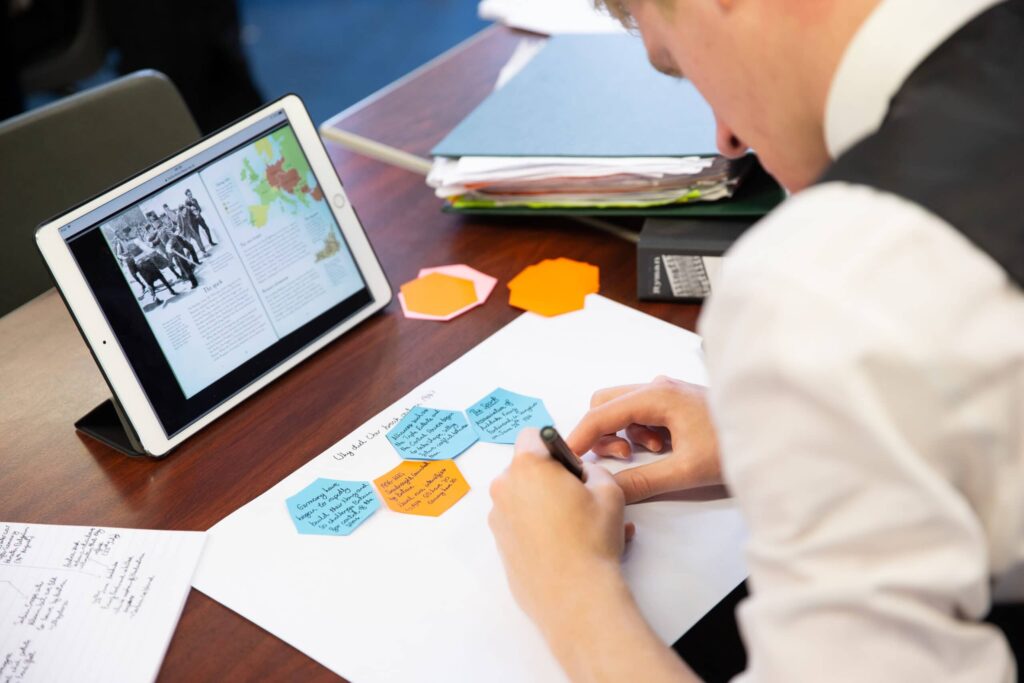In a recent survey of US parents where they were asked their biggest fears about their children growing up, screens topped the charts by a long way. Not drugs, cars, or any other threats to physical safety – but screens in general, and social media in particular. The parents in this survey are right to be concerned. The data on how screens are affecting young people is deeply alarming. Jonathan Haidt at NYU has been pouring over and interpreting the data on this in his excellent recent substack series. Haidt points out the powerful correlations between screen time and mental health. The younger you are, the more adversely affected you are by screens and social media; and the younger you are when you get a phone, the more likely you are to be depressed as an adult.
There is an endless amount of content online that could unsettle or derail one’s mental health (particularly when brains and identities are in formation). Though the unsuitable content young people see online is a concern that is widely (and rightly) shared, most online safety provision in schools focuses on this, so I will not dwell on it here. Instead, I want to draw attention to three substantive areas of life that are directly impacted by screen use: sleep, attention, and opportunity cost.
Sleep
Anyone who has read Matthew Walker’s book ‘Why We Sleep’, will need no convincing of the importance of sleep (here’s a TED talk with key points). Sleep deprivation comes with a host of negative consequences, from pushing up your chances of dementia, heart problems and cancer, to the everyday impacts of impaired functioning, lack of self-regulation, and inability to learn new information. Those rectangular screens that sit beside most beds across the country are waging a war with your sleep – from the blue light which contributes to sleep latency, to the alerts and the doom scrolling that ensure your sleep is never as deep or as restful as it should be. Unfortunately, lack of sleep leads to a lack of self-control, which means the process is likely to be repeated the following evening.
Attention
There has also been a conspicuous and deliberate erosion of our ability to pay attention. According to Dr Gloria Mark, the average attention span online in 2004 was 2 minutes and 30 seconds; since then attention has been on an alarming trajectory towards its current length of about 40 seconds. We live in an attention economy where our attention is viewed as capitalism’s greatest asset, as algorithms programmed to harness and hold our attention continually feed our insatiable appetite for novelty. As Statistician Edward Tufte put it, “There are two industries that call their customers users: illegal drugs and software”. This is tampering with neural wiring, as the reward and motivation hormone dopamine is released with every virtual affirmation or novel video. In the language of Dr Anna Lembke, our screens have become drugified. If adults with a degree of self-regulation struggle with this, think of how much of a losing battle a teenager is fighting who hasn’t learned to regulate (and has probably under-slept).
Opportunity cost
Clearly, when someone is on their phone, they are not taking the opportunity to do other non-phone activities that are healthy or productive. If people spend upwards of 5 hours a day on their phone (as many do), that adds up to a huge opportunity cost. There is an uncontroversial consensus that we are wired with the need for social connection, physical exercise, and time in nature, among other things – none of which are possible in the same way through a phone. Johann Hari’s 2019 book Lost Connections explores the epidemic of anxiety and depression as a result of the fact that we are wired for certain connections that we are adrift from, something the philosopher Wittgenstein observed when he wrote ‘Put a man in the wrong atmosphere and nothing will function as it should. He will seem unhealthy in every part. Put him back into his proper element and everything will blossom and look healthy.’
Mitigating the damage
If something is wrong with your body or mind, then addressing the issue begins with diagnosis, with becoming aware of what is going wrong. Understanding how screens shape us, what tools of manipulation and control are being used by software engineers, is key to protecting ourselves from them. Watching the Netflix documentary The Social Dilemma is an excellent way to find out some of these things, as is Johann Hari’s latest book Stolen Focus, and Anna Lembke’s excellent book Dopamine Nation. All of these explore the tactics employed to harvest our attention, and the consequences this has on our sleep, attention and emotional state.
Knowing is helpful, but only up to a point – we need to take action. The Centre for Humane Technology contains a raft of measures that add friction to the persuasive design of your phones (e.g. turning your phone grayscale), which will make you less likely to be drawn to it. Like Odysseus binding himself to the mast to protect him from the call of the Sirens, we also need to find ways of removing ourselves from our phones. This often means having them inaccessible, in another room or lockbox somewhere for certain periods of the day (out of the bedroom and away from the dinner table for example). The American company Yondr have created pouches which lock phones away for the duration of a concert or a school day, thus removing the temptation of the phone, without the risk and faff of actually having to remove the device itself.
Finally, there is the need to develop character traits (in ourselves and those in our care) to help us manage screens. This starts with self-awareness and talking about the impacts of screens, but then we also need to be good at critical thinking, self-control and integrity. Just as these virtues are important offline, they are at least as important in the online world. Dr Tom Harrison at the Jubilee Centre in Birmingham has written a helpful book on this topic, which helps prepare parents and educators to identify and cultivate those traits that people need to have a healthy relationship with their screens.
Finally, there is also the need to be a good role model for those who look up to us – if we are not modelling the kind of behaviour we would like to see, there is scant hope of being able to develop it. If you are anything like me, then this point is the one with a real sting in it – it is where I need to take my own advice in removing the power that my phone wields in so many aspects of my life. Screens are one of the main challenges of our day, and the sooner we figure what it means to have a healthy relationship with them, the better off we will all be.
by Kenny Primrose




